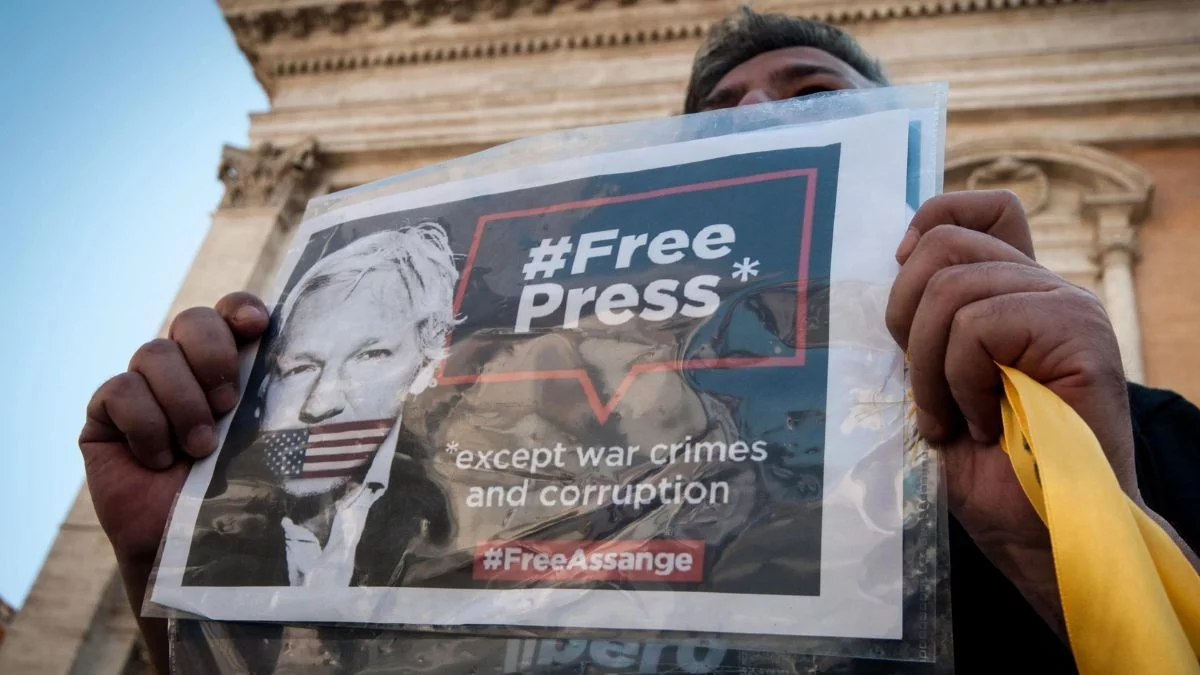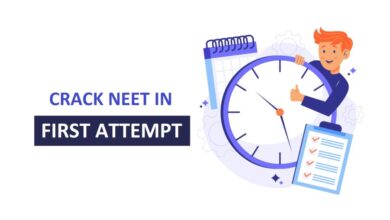In today’s rapidly evolving media landscape, the rise of citizen free press stands as a testament to the democratization of information dissemination. Gone are the days when journalism was solely the domain of trained professionals working in established news organizations. Citizen free press, also known as citizen journalism, has emerged as a powerful force, allowing ordinary individuals to become active participants in the news-gathering and reporting process.
Introduction: Understanding the Evolution of Journalism
The evolution of journalism traces back centuries, from the early handwritten newsletters circulated among small communities to the advent of mass printing and the rise of modern newspapers. However, the digital revolution of the 21st century has brought about unprecedented changes, democratizing the dissemination of news and information like never before. With the proliferation of internet access and the widespread adoption of social media platforms, anyone with a smartphone and an internet connection can now become a citizen journalist, capable of capturing and sharing newsworthy events in real-time.
This shift in the media landscape has blurred the lines between professional journalism and citizen reporting, raising important questions about the role of traditional gatekeepers and the credibility of information disseminated through non-traditional channels. Yet, amidst these challenges, citizen free press has emerged as a powerful force for transparency, accountability, and grassroots activism, amplifying voices that may have otherwise been marginalized or silenced.
What is Citizen Free Press?
At its core, citizen free press refers to the practice of ordinary individuals participating in the creation, analysis, and dissemination of news and information. Unlike traditional journalism, which often operates within established newsrooms and follows strict editorial guidelines, citizen free press is characterized by its grassroots nature and decentralized approach. Citizens who engage in free press activities often do so out of a sense of civic duty, personal passion, or a desire to fill gaps in mainstream media coverage.
One of the defining features of citizen free press is its accessibility. In the digital age, virtually anyone with access to the internet and basic recording equipment can become a citizen journalist. This accessibility has democratized the news-gathering process, allowing for the documentation of events and stories that may have otherwise gone unnoticed or underreported by traditional media outlets. Additionally, citizen free press offers a level of authenticity that resonates with audiences craving unfiltered, firsthand accounts of events as they unfold.
Diversity is another hallmark of citizen free press. Unlike traditional newsrooms, which may be limited in their perspectives due to factors such as geographic location, socioeconomic status, or institutional biases, citizen journalists come from all walks of life and represent a wide range of backgrounds and experiences. This diversity enriches the news ecosystem, providing a plurality of voices and viewpoints that reflect the complexities of modern society.
The Role of Citizen Free Press in Modern Society
In an era marked by rapid globalization, technological advancement, and political polarization, the role of citizen free press in modern society cannot be overstated. As traditional media outlets grapple with shrinking budgets, editorial constraints, and concerns over corporate influence, citizen journalists have stepped in to fill the void, serving as watchdogs, storytellers, and agents of change in their communities.
One of the most significant contributions of citizen free press is its ability to break news and provide real-time updates on unfolding events. In an age where information travels at the speed of light, citizen journalists armed with smartphones and social media accounts are often the first to capture and share footage of breaking news events, from natural disasters and protests to acts of police brutality and social unrest. This real-time reporting not only informs the public but also serves as a catalyst for broader conversations and action.
Furthermore, citizen free press plays a crucial role in filling information gaps left by traditional media outlets. In an era of shrinking newsrooms and dwindling resources, many communities find themselves underserved or misrepresented by mainstream media. Citizen journalists, with their intimate knowledge of local issues and close ties to their communities, are uniquely positioned to shed light on stories that may otherwise go untold. Whether it’s covering local elections, highlighting grassroots movements, or exposing injustices, citizen journalists serve as champions of transparency and accountability at the grassroots level.
Moreover, citizen free press has proven to be a powerful tool for amplifying marginalized voices and holding power accountable. In an age of misinformation and propaganda, citizen journalists often serve as truth-seekers, challenging official narratives and providing alternative perspectives on issues of public interest. From documenting human rights abuses to exposing corruption in government and corporate institutions, citizen free press serves as a bulwark against censorship and authoritarianism, giving voice to the voiceless and shining a light on injustices that may otherwise go unnoticed.
Tools and Platforms for Citizen Free Press
The advent of digital technologies and the widespread availability of internet access have empowered citizen journalists with a myriad of tools and platforms for sharing their stories with the world. From social media networks and blogging platforms to independent news websites and podcasting channels, citizen journalists have a wealth of options at their disposal for reaching audiences and disseminating information.
Social media networks such as Twitter, Facebook, and Instagram have become invaluable tools for citizen journalists seeking to reach a broad audience quickly. These platforms allow users to share text, photos, videos, and live streams in real-time, making them ideal for documenting breaking news events and capturing eyewitness accounts. Hashtags and geotags enable citizen journalists to organize and categorize their content, making it more discoverable to audiences searching for information on specific topics or events.
Blogging platforms like WordPress, Medium, and Blogger provide citizen journalists with a more long-form and customizable means of storytelling. These platforms allow users to publish articles, essays, and opinion pieces on a wide range of topics, from politics and social justice to culture and the arts. With built-in features such as comments sections and social sharing buttons, blogging platforms facilitate engagement and interaction with readers, fostering a sense of community around citizen-driven content.
Independent news websites and online publications offer citizen journalists a more established and professional platform for sharing their work. While traditional news organizations may be hesitant to publish content from unvetted sources, independent news websites often embrace citizen journalism as a means of diversifying their coverage and providing alternative perspectives. Many of these websites operate on a nonprofit or volunteer basis, relying on donations, subscriptions, and advertising revenue to sustain their operations.
Podcasting and video channels have also emerged as popular mediums for citizen journalists looking to tell compelling stories in audiovisual formats. Platforms like YouTube, Twitch, and SoundCloud enable users to create and distribute podcasts, vlogs, and documentary-style videos to global audiences. With the rise of affordable recording equipment and editing software, citizen journalists can produce high-quality multimedia content from the comfort of their own homes, bypassing traditional gatekeepers and reaching audiences directly.
Ethical Considerations in Citizen Free Press
While citizen free press offers unparalleled opportunities for individuals to share their stories and perspectives with the world, it also raises important ethical considerations that must be carefully navigated. Unlike professional journalists, who are bound by codes of ethics and editorial guidelines, citizen journalists often operate without formal training or institutional oversight, raising concerns about accuracy, objectivity, and accountability.
One of the primary ethical considerations in citizen free press is accuracy and fact-checking. In the age of social media and instant gratification, the pressure to be the first to break a story can sometimes lead to errors or misinformation being disseminated unchecked. Citizen journalists must take care to verify the accuracy of their information before sharing it with the public, cross-referencing multiple sources and seeking corroboration from credible sources whenever possible.
Maintaining objectivity is another ethical challenge facing citizen journalists. Unlike professional journalists, who are trained to maintain a neutral and impartial stance in their reporting, citizen journalists may be more susceptible to bias, personal opinion, or advocacy. While there is value in bringing a diversity of perspectives to the news ecosystem, citizen journalists must be transparent about their biases and motivations, acknowledging any potential conflicts of interest that may impact their reporting.
Handling sensitive information with care is also paramount in citizen free press. From protecting the privacy of sources and subjects to safeguarding confidential information, citizen journalists must adhere to ethical standards of responsible journalism. This includes obtaining informed consent from individuals featured in their reporting, respecting cultural sensitivities and legal boundaries, and minimizing harm to vulnerable populations.
Respect for privacy is another ethical consideration that citizen journalists must grapple with. While the public’s right to know is an essential principle of journalism, it must be balanced with the rights of individuals to privacy and dignity. Citizen journalists must exercise discretion when sharing personal or sensitive information, avoiding unnecessary intrusion into the lives of others and respecting boundaries when documenting public events or gatherings.
Challenges Faced by Citizen Free Press
Despite its many benefits and contributions to the media landscape, citizen free press also faces a myriad of challenges and obstacles that must be addressed in order to realize its full potential. From credibility concerns and misinformation to legal risks and financial sustainability, citizen journalists must navigate a complex and ever-changing landscape fraught with pitfalls and barriers to success.
One of the most pressing challenges facing citizen free press is credibility concerns. In an era of fake news and information overload, distinguishing between reliable sources and unreliable ones can be difficult for audiences inundated with a deluge of conflicting information. Citizen journalists, lacking the institutional credibility of traditional news organizations, may struggle to gain the trust of skeptical audiences, particularly when their reporting conflicts with established narratives or official sources.
Dealing with misinformation is another significant challenge for citizen journalists. In an age where viral hoaxes and conspiracy theories can spread like wildfire on social media, citizen journalists must be vigilant in fact-checking and verifying the accuracy of their information before sharing it with the public. Failure to do so can not only erode trust in citizen journalism as a whole but also have real-world consequences for individuals and communities misled by false or misleading information.
Legal and safety risks are also major concerns for citizen journalists operating in regions with limited press freedom or hostile environments. From harassment and intimidation to arrest and imprisonment, citizen journalists face a range of threats and dangers simply for exercising their right to free speech and expression. In some cases, governments may enact laws or regulations aimed at censoring or silencing citizen journalists, further endangering their safety and security.
Furthermore, financial sustainability remains a significant challenge for many citizen journalists, who often lack the resources and support necessary to sustain their work over the long term. Unlike traditional news organizations, which may have access to advertising revenue, subscription fees, or institutional funding, citizen journalists often rely on crowdfunding, donations, or freelance gigs to make ends meet. This precarious financial situation can limit the ability of citizen journalists to invest in equipment, training, and investigative reporting, undermining the quality and impact of their work.
Success Stories in Citizen Free Press
Despite the numerous challenges and obstacles facing citizen free press, there are also many success stories that illustrate the transformative power of grassroots journalism in action. From grassroots movements and activism to impactful investigations and community engagement initiatives, citizen journalists have made significant contributions to the public discourse and the pursuit of social justice around the world.
One notable success story in citizen free press is the role played by citizen journalists in documenting and exposing human rights abuses and atrocities in conflict zones and repressive regimes. In countries where traditional media outlets are censored or controlled by the state, citizen journalists have stepped in to fill the void, providing firsthand accounts and evidence of human rights violations to international audiences. From Syria and Yemen to Myanmar and Venezuela, citizen journalists have risked their lives to shine a light on injustices that may have otherwise gone unnoticed or ignored by the world.
Another success story in citizen free press is the impact of grassroots movements and activism fueled by citizen-driven storytelling and advocacy. From the Arab Spring and Occupy Wall Street to the Black Lives Matter movement and the #MeToo movement, citizen journalists have played a crucial role in mobilizing public opinion, raising awareness, and effecting social change on a global scale. Through the power of citizen-driven storytelling and digital activism, marginalized communities have been able to amplify their voices, challenge oppressive systems, and hold power accountable for its actions.
Community engagement and empowerment are also key elements of success in citizen free press. Unlike traditional news organizations, which may be disconnected from the communities they serve, citizen journalists are often deeply embedded in their local contexts, with intimate knowledge of the issues, concerns, and aspirations of their fellow citizens. By engaging directly with their audiences and soliciting feedback, citizen journalists can foster a sense of ownership and belonging among their followers, turning them into active participants in the news-gathering and reporting process.
Collaboration Between Citizen Journalists and Traditional Media
While citizen free press has emerged as a powerful force for grassroots journalism and alternative storytelling, it is not without its limitations. Citizen journalists may lack the resources, training, and institutional support of their counterparts in traditional newsrooms, making it difficult for them to compete on an equal footing. However, collaboration between citizen journalists and traditional media outlets offers a promising solution to this challenge, combining the strengths of both approaches to create more robust and impactful journalism.
Bridging the gap between citizen journalists and traditional media outlets requires a willingness on both sides to recognize and leverage each other’s strengths and expertise. While citizen journalists may excel at capturing raw footage and eyewitness accounts of breaking news events, traditional media outlets bring valuable resources and editorial oversight to the table, including fact-checking, legal support, and distribution networks. By working together, citizen journalists and traditional media outlets can amplify each other’s voices and reach a broader audience with their reporting.
One example of successful collaboration between citizen journalists and traditional media outlets is the use of user-generated content in news coverage. In recent years, many news organizations have embraced the use of photos, videos, and firsthand accounts shared by citizen journalists on social media platforms as part of their reporting on breaking news events and developing stories. By curating and verifying user-generated content, traditional media outlets can enrich their coverage with diverse perspectives and authentic voices from the ground.
Another example of collaboration between citizen journalists and traditional media outlets is the sharing of resources and expertise to produce investigative journalism projects. While citizen journalists may lack the training and resources to conduct in-depth investigations on their own, they can partner with traditional media outlets to leverage their expertise in research, reporting, and storytelling. By pooling their resources and working together on collaborative projects, citizen journalists and traditional media outlets can uncover hidden truths, expose wrongdoing, and effect meaningful change in their communities.
Empowering Citizen Journalists
Empowering citizen journalists requires a multifaceted approach that addresses the various challenges and barriers they face in their work. From training and education initiatives to access to resources and tools, building support networks, and fostering collaboration between citizen journalists and traditional media outlets, there are many strategies that can be employed to empower citizen journalists and elevate the quality and impact of their reporting.
One of the most important ways to empower citizen journalists is through training and education initiatives that provide them with the skills, knowledge, and resources they need to succeed in their work. This includes training programs on digital literacy, media ethics, fact-checking, and storytelling techniques, as well as workshops and seminars led by experienced journalists and industry experts. By equipping citizen journalists with the tools and techniques of the trade, training and education initiatives can help them produce more accurate, ethical, and impactful journalism.
Access to resources and tools is another key factor in empowering citizen journalists. From smartphones and cameras to editing software and recording equipment, citizen journalists rely on a variety of tools and technologies to capture, edit, and share their stories with the world. By providing affordable access to these resources, either through subsidies, grants, or partnerships with technology companies, organizations can lower the barriers to entry for aspiring citizen journalists and enable them to produce higher-quality content.
Building support networks is also essential for empowering citizen journalists and fostering a sense of community and collaboration within the industry. Whether through online forums, social media groups, or local meetups, citizen journalists can benefit greatly from connecting with their peers, sharing best practices, and seeking advice and feedback on their work. By creating opportunities for networking and mentorship, organizations can help citizen journalists build relationships and partnerships that enhance their professional development and expand their reach.
Global Perspectives on Citizen Free Press
While the rise of citizen free press is a global phenomenon, its impact and implications vary significantly depending on the cultural, political, and socioeconomic context in which it operates. From countries with robust press freedom protections to those with limited media freedoms or repressive regimes, citizen journalists face a wide range of challenges and opportunities that shape their ability to operate and thrive in different parts of the world.
In countries with strong press freedom protections and a vibrant civil society, citizen free press has flourished as a vital component of the media landscape, complementing and enhancing the work of traditional news organizations. In democracies where freedom of expression is enshrined in law and citizens enjoy broad access to information, citizen journalists play a crucial role in holding power accountable, amplifying marginalized voices, and fostering civic engagement and participation. Examples include the United States, Canada, and countries in Western Europe.
In contrast, in countries with limited press freedom or hostile environments for journalists, citizen free press faces significant challenges and risks. In authoritarian regimes where independent media are censored or controlled by the state, citizen journalists may be subject to harassment, intimidation, and arrest simply for exercising their right to free speech and expression. Despite these risks, many citizen journalists continue to defy government censorship and surveillance, using digital technologies and encryption tools to circumvent censorship and disseminate information to audiences both inside and outside their countries.
Government responses to citizen free press vary widely depending on the political context and the perceived threat posed by independent media and citizen journalists. In some countries, governments have embraced citizen free press as a means of fostering transparency, accountability, and citizen engagement, providing support and resources to grassroots media initiatives and citizen journalism networks. In others, however, governments have sought to suppress citizen free press through censorship, surveillance, and harassment, viewing it as a threat to their authority and control over the flow of information.
Future Trends and Innovations
Looking ahead, the future of citizen free press is ripe with opportunities for innovation, growth, and positive change. From technological advancements and new forms of storytelling to regulatory changes and policy implications, there are many trends and developments shaping the future of citizen journalism and its role in the media landscape.
Technological advancements are likely to play a significant role in shaping the future of citizen free press, with emerging technologies such as artificial intelligence, virtual reality, and blockchain offering new opportunities for storytelling, engagement, and collaboration. AI-powered algorithms and natural language processing tools can help citizen journalists sift through vast amounts of data and identify trends and patterns in real-time, while VR and immersive storytelling techniques can transport audiences to the heart of the action, enabling them to experience events firsthand.
New forms of storytelling are also emerging as citizen journalists experiment with innovative formats and mediums for sharing their stories with the world. From interactive multimedia experiences and immersive documentaries to serialized podcasts and live streaming events, citizen journalists are exploring new ways to engage audiences and convey complex narratives in compelling and impactful ways. By harnessing the power of storytelling, citizen journalists can captivate audiences, provoke empathy, and inspire action on issues of public interest.
Regulatory changes and policy implications are another important factor shaping the future of citizen free press, particularly in countries where governments seek to regulate or restrict independent media and free expression online. As governments grapple with the challenges posed by citizen journalism and the spread of misinformation, they may enact laws or regulations aimed at controlling the flow of information and stifling dissent. However, such measures are likely to be met with resistance from civil society organizations, advocacy groups, and international human rights organizations, who will continue to defend press freedom and the rights of citizen journalists to speak truth to power.
Conclusion: The Enduring Impact of Citizen Free Press
In conclusion, the rise of citizen free press represents a paradigm shift in the way news and information are created, disseminated, and consumed in the digital age. From breaking news and real-time reporting to grassroots activism and community engagement, citizen journalists play a crucial role in shaping public discourse, holding power accountable, and amplifying voices that may otherwise go unheard.
As we navigate the complex and ever-changing media landscape of the 21st century, it is essential to recognize and celebrate the contributions of citizen journalists to our collective understanding of the world around us. By empowering citizen journalists with the tools, resources, and support they need to succeed, we can create a more inclusive and democratic media ecosystem that reflects the diversity of voices and perspectives that make up our global community.
As the saying goes, “freedom of the press belongs to those who own one.” In an era where anyone with a smartphone and an internet connection can become a citizen journalist, the power to shape the news and tell our own stories has never been more accessible or more important. By embracing the principles of transparency, accountability, and civic engagement, we can harness the transformative potential of citizen free press to build a more just, equitable, and informed society for generations to come.
Frequently Asked Questions (FAQs)
How does citizen journalism differ from traditional journalism?
Citizen journalism involves ordinary individuals participating in the creation, analysis, and dissemination of news and information, often using digital technologies and social media platforms to share their stories with the world. Traditional journalism, on the other hand, typically involves trained professionals working in established news organizations and following strict editorial guidelines and ethical standards.
Are there any legal risks associated with being a citizen journalist?
Yes, citizen journalists may face legal risks and challenges, particularly in countries with limited press freedom or hostile environments for journalists. Depending on the laws and regulations governing free expression and media freedom in their country, citizen journalists may be subject to harassment, intimidation, arrest, or prosecution for their reporting activities.
How can one get started as a citizen journalist?
Getting started as a citizen journalist is relatively easy, requiring little more than a smartphone and an internet connection. To begin, individuals can start by identifying a topic or issue they are passionate about and want to cover, whether it’s local news, social justice issues, or community events. From there, they can use social media platforms, blogging sites, or independent news websites to share their stories with the world and engage with audiences.
What role does social media play in citizen free press?
Social media plays a crucial role in citizen free press by providing citizen journalists with a platform to share their stories with the world and engage with audiences in real-time. Platforms like Twitter, Facebook, and Instagram allow users to share text, photos, videos, and live streams, making it easy for citizen journalists to document breaking news events and share eyewitness accounts with a global audience.
How can citizen journalists ensure the credibility of their reporting?
Citizen journalists can ensure the credibility of their reporting by following best practices in journalism, including verifying the accuracy of their information before sharing it with the public, cross-referencing multiple sources, and seeking corroboration from credible sources whenever possible. Additionally, citizen journalists should be transparent about their biases and motivations, acknowledging any potential conflicts of interest that may impact their reporting.
What are some examples of successful citizen journalism initiatives?
There are many examples of successful citizen journalism initiatives around the world, from grassroots movements and activism to impactful investigations and community engagement projects. Examples include the Arab Spring, Occupy Wall Street, the Black Lives Matter movement, and the #MeToo movement, which have all been fueled by citizen-driven storytelling and advocacy.
How can traditional media outlets collaborate with citizen journalists effectively?
Traditional media outlets can collaborate with citizen journalists effectively by recognizing and leveraging each other’s strengths and expertise. This may involve curating and verifying user-generated content for use in news coverage, partnering on collaborative investigative journalism projects, or providing training and resources to support the professional development of citizen journalists.
What are the ethical considerations for citizen journalists?
Citizen journalists must navigate a range of ethical considerations in their work, including accuracy and fact-checking, maintaining objectivity, handling sensitive information with care, and respecting the privacy of sources and subjects. By adhering to principles of responsible journalism and ethical conduct, citizen journalists can uphold the integrity and credibility of their reporting.
How can citizen journalists stay safe when reporting on sensitive topics?
Citizen journalists can stay safe when reporting on sensitive topics by taking precautions to protect their personal safety and security. This may include conducting risk assessments before embarking on reporting assignments, using encryption tools and secure communication channels to protect sensitive information, and seeking legal advice and support when necessary.
What impact does citizen free press have on democracy and civic engagement?
Citizen free press has a significant impact on democracy and civic engagement by providing a platform for ordinary individuals to participate in the creation, analysis, and dissemination of news and information. By empowering citizens to tell their own stories and hold power accountable, citizen free press fosters transparency, accountability, and civic participation, strengthening the foundations of democracy and promoting social justice and human rights.






